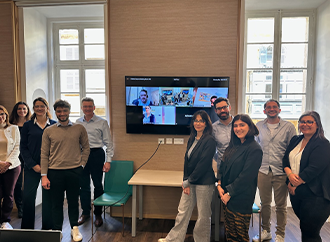
Understanding the Impact of Sea Level Rise on Mediterranean Coastal Areas
The Mediterranean region faces a growing environmental challenge due to rising sea levels, which threaten coastal communities, ecosystems, and economic activities. The University of Malta is actively involved in initiatives aimed at understanding and mitigating these impacts, with a focus on sustainable management and resilience. Recognizing the importance of regional cooperation, the university has hosted crucial meetings to develop strategies that safeguard the Mediterranean’s future from the adverse effects of climate change.
University of Malta’s Role in the MedSeaRise Project and Regional Collaboration
The MedSeaRise project exemplifies a collaborative effort among Mediterranean countries including Greece, Italy, France, Spain, Montenegro, and Malta to tackle sea level rise. Led by the University of Malta, the project aims to create a comprehensive impact assessment framework and formulate actionable strategies to protect vulnerable coastlines. By fostering cross-border cooperation, the university is helping to develop innovative solutions that can be implemented at the regional and local levels.
Key Components and Objectives of the MedSeaRise Initiative
- Develop detailed impact assessment models for Mediterranean coastlines.
- Analyze the socio-economic and environmental effects of sea level rise.
- Share technical insights among regional experts and stakeholders.
- Design and recommend adaptation measures for vulnerable communities.
Enhancing Coastal Community Protection through Scientific Research
Recent meetings held at the University of Malta facilitated vital discussions among scientists, policymakers, and local authorities on strategies to enhance coastal resilience. For example, insights from Malta’s Water and Energy Authorities underscore the importance of innovative water management technologies such as desalination and reclaimed water, which are crucial in adapting to changing climatic conditions.
Addressing the challenges of water resource management in a warming climate is essential for sustainable development. The university’s researchers are analyzing the energy demands and environmental impacts of these technologies, helping to ensure their efficiency and environmental compatibility.
The Importance of Multidisciplinary Approaches in Climate Change Adaptation
Addressing sea level rise requires a holistic approach encompassing geosciences, engineering, policy, and community participation. The University of Malta’s involvement in the MedSeaRise project exemplifies this strategy by integrating scientific research with practical policy recommendations. Such efforts ensure that adaptive measures are realistic, effective, and inclusive.
Educational and Career Opportunities in Climate Science at the University of Malta
For students passionate about environmental issues, the university offers a variety of courses in climate science, renewable energy, and environmental management. Engaging in research and projects like MedSeaRise provides hands-on experience and a platform to develop innovative solutions for climate adaptation.
How Communities Can Contribute to Coastal Resilience
Community involvement is essential for effective climate adaptation. Awareness campaigns, local monitoring, and participatory planning help empower residents to take action. The success of regional initiatives depends on the active engagement of local stakeholders, businesses, and governments in implementing resilience measures.
Preparing for a Rising Sea in the Mediterranean
The University of Malta’s leadership in regional climate initiatives highlights the critical role academic institutions play in addressing global environmental challenges. By combining research, policy development, and community engagement, the university is helping to shape adaptive strategies that can effectively mitigate the impacts of sea level rise in the Mediterranean region.
Interested in studying at the University of Malta? Fill out the form to get personalized support from a Studygram expert counselor. We’ll guide you through program selection, admission requirements, and the application process, making it easier for you to take the next step toward your academic goals in Malta.

